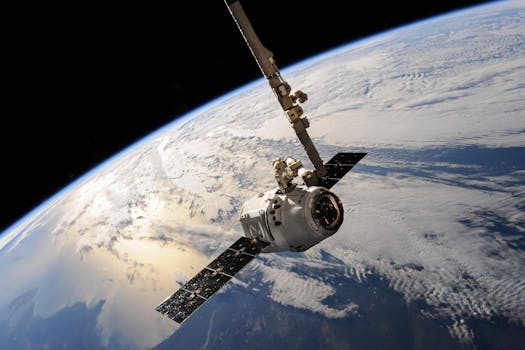The Future of Satellites: Revolutionizing Global Connectivity

The Future of Satellites: Revolutionizing Global Connectivity
As we continue to push the boundaries of space technology, the future of satellites is looking brighter than ever. With the increasing demand for global connectivity, satellites are playing a vital role in bridging the gap between remote and urban areas. The future of satellites is not just about providing internet access, but also about transforming the way we communicate, navigate, and understand our planet.
Advancements in Space Technology
Recent advancements in space technology have made it possible to launch smaller, more efficient, and cost-effective satellites into orbit. This has led to a significant increase in the number of satellites being launched, with many more planned for the future. Companies like SpaceX, OneWeb, and Amazon’s Kuiper Systems are at the forefront of this revolution, with plans to launch thousands of satellites in the coming years.
These new satellites will not only provide faster and more reliable internet connectivity, but also enable a wide range of other applications, such as Earth observation, weather forecasting, and navigation. With the ability to collect and transmit vast amounts of data, satellites will play a critical role in helping us better understand our planet and make more informed decisions about our environment and resources.
Global Connectivity and the Digital Divide
One of the most significant benefits of the future of satellites is the potential to bridge the digital divide and provide global connectivity to remote and underserved areas. According to the International Telecommunication Union (ITU), approximately 3.8 billion people, or about 50% of the world’s population, lack access to the internet. Satellites can help address this issue by providing a cost-effective and efficient way to deliver internet access to these areas.
Companies like Facebook and Google are already working on initiatives to use satellites to provide internet access to remote areas. For example, Facebook’s Internet.org initiative aims to use satellites to provide free or low-cost internet access to underserved communities around the world. Similarly, Google’s Project Loon uses high-altitude balloons to provide internet access to remote areas, but the company is also exploring the use of satellites for this purpose.
Challenges and Opportunities
While the future of satellites holds much promise, there are also significant challenges to be addressed. One of the biggest challenges is the issue of space debris, which poses a significant threat to the long-term sustainability of space exploration and development. As the number of satellites in orbit increases, so does the risk of collisions and the accumulation of debris.
Another challenge is the need for international cooperation and regulation. As the use of satellites becomes more widespread, there is a growing need for global standards and regulations to ensure that satellites are used responsibly and safely. This will require cooperation between governments, industry stakeholders, and other organizations to develop and implement effective regulations and standards.
Despite these challenges, the future of satellites also presents many opportunities for innovation and entrepreneurship. With the increasing demand for satellite-based services, there is a growing need for companies that can provide specialized services, such as satellite manufacturing, launch services, and data analytics. This is creating new opportunities for startups and established companies alike to innovate and thrive in the satellite industry.
Conclusion
In conclusion, the future of satellites is a rapidly evolving and exciting field that holds much promise for transforming the way we communicate, navigate, and understand our planet. With advancements in space technology, the increasing demand for global connectivity, and the growing need for satellite-based services, the opportunities for innovation and entrepreneurship are vast. However, there are also significant challenges to be addressed, including the issue of space debris and the need for international cooperation and regulation. As we look to the future, it is clear that satellites will play an increasingly important role in shaping our world and addressing some of the most pressing challenges of our time.







